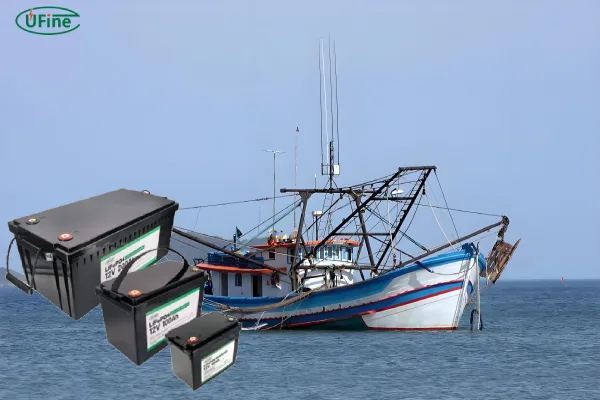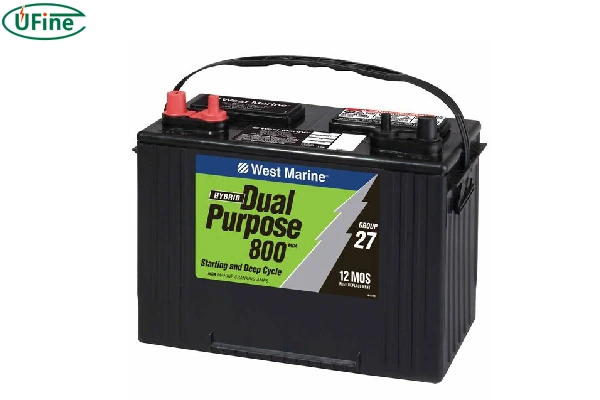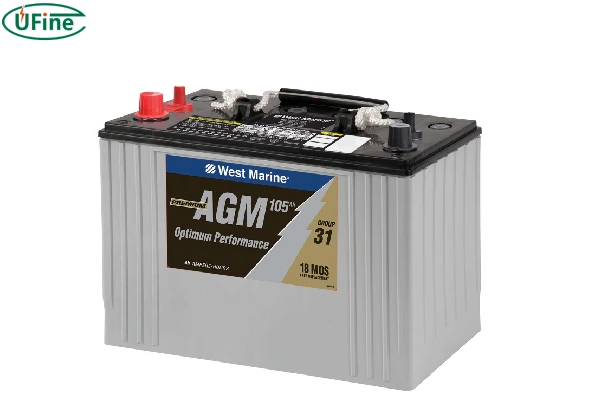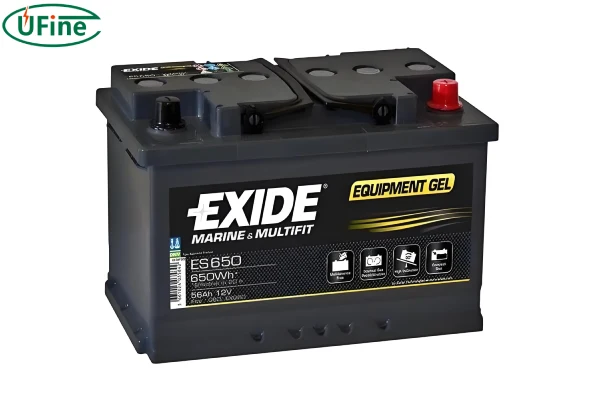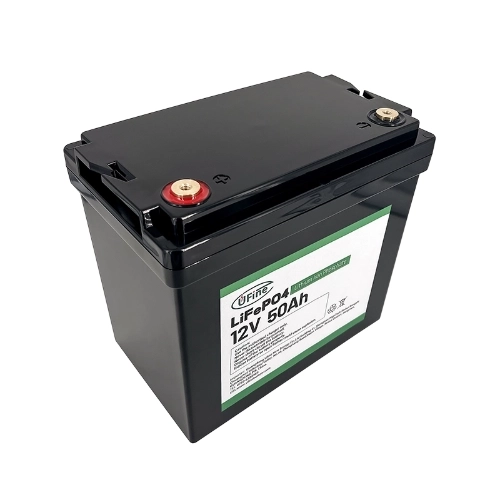If you’re wondering what battery to power accessories on a boat, you’re not alone. Selecting the right battery is crucial for keeping everything running smoothly, from fish finders and GPS systems to lighting and entertainment devices. But with so many options available, how do you know which battery is best for your boat’s needs? This guide will help you understand where to begin with battery selection, the different types of boat batteries, and why lithium (LiFePO4) batteries are highly recommended.
Part 1. Where to begin with battery selection
Before diving into the different types of batteries, it’s important to first consider what equipment on your boat requires electricity. Understanding your power needs will guide your choice.
Common Boat Accessories that Need Power:
- Fish Finders and GPS Systems: Crucial for navigation and fishing, these devices need continuous power to function effectively.
- Lighting: From cabin lights to navigation lights, boat lighting requires reliable power to keep you safe during nighttime sailing.
- Bilge Pumps: A bilge pump ensures that water is removed from the boat, and it relies heavily on battery power to operate.
- Entertainment Systems: Speakers, radios, and other entertainment devices also need to draw power from your boat’s battery.
- Refrigerators and Coolers: For those long trips, keeping food and beverages cold is another power-hungry task.
Once you have a clear understanding of what needs power, you can better assess your battery needs. Do you only need power for short trips, or are you going on extended outings where continuous power is required?
Part 2. Boat battery types
There are several types of batteries commonly used in boats. Each comes with its own set of characteristics and is suited for specific applications.
Flooded Lead-Acid Batteries:
- These are the most traditional type of marine battery.
- They require regular maintenance (such as topping up water levels).
- Offer a lower upfront cost but have a shorter lifespan compared to more modern options.
AGM (Absorbed Glass Mat) Batteries:
- AGM batteries are maintenance-free and spill-proof, making them safer and easier to use.
- They provide good performance for moderate to heavy usage.
- They have a longer lifespan compared to lead-acid batteries but come at a higher cost.
Gel Batteries:
- Gel batteries are a type of lead-acid battery but use a gelified electrolyte.
- They offer better performance at extreme temperatures and have a lower risk of spillage.
- However, they charge slower and are more expensive than AGM batteries.
- Lithium iron phosphate (LiFePO4) batteries are becoming the go-to choice for marine use.
- They are lightweight, maintenance-free, and have a much longer lifespan.
- Although more expensive, they offer superior performance and energy efficiency.
AGM VS Lithium VS Lead-Acid Battery: Comprehensive Comparison
Part 3. Why is lithium (LiFePO4) boat battery recommended?
Lithium (LiFePO4) boat batteries are gaining popularity for good reasons. Here’s why you should consider them for powering your boat’s accessories:
Longer Lifespan:
A lithium battery can last up to 10 times longer than a traditional lead-acid battery. This makes them a great long-term investment.
Lightweight:
Lithium batteries weigh significantly less than other types. This reduces the overall weight of your boat, which can help with fuel efficiency.
Higher Energy Efficiency:
Lithium batteries are far more energy-efficient. They can be discharged up to 80-90% without damaging the battery, unlike lead-acid batteries, which can only be safely discharged by 50%.
Maintenance-Free:
Lithium batteries don’t require any water top-ups or regular maintenance, saving you time and hassle.
Faster Charging:
They recharge much faster than lead-acid batteries, allowing you to get back on the water sooner.
Environmentally Friendly:
Lithium batteries are more eco-friendly since they last longer and contain fewer harmful chemicals compared to other battery types.
Part 4. Key considerations for choosing boat batteries
When selecting the right battery for your boat, it’s essential to consider several key factors. Here’s what you need to keep in mind:
-
Capacity (Ah): The battery capacity, measured in amp-hours (Ah), tells you how long the battery can power your equipment. The higher the Ah, the longer your battery will last before needing to be recharged.
-
Voltage: Make sure the battery you choose matches the voltage requirements of your boat’s electrical system. Most boats use 12V systems, but it’s important to verify this.
-
Weight: If weight is a concern, especially for small boats, lithium batteries are your best bet due to their lightweight nature.
-
Durability: Consider where you’ll be using your boat. If you’re in rough waters or extreme conditions, you’ll need a battery that can withstand vibration and temperature fluctuations. AGM and lithium batteries are great options for their durability.
-
Lifespan: How long you want your battery to last is another key factor. While lithium batteries may cost more upfront, their long lifespan often makes them more cost-effective in the long run.
-
Maintenance Needs: Some batteries, like flooded lead-acid batteries, require regular maintenance. If you prefer a hassle-free option, lithium or AGM batteries may be a better choice.
Part 5. How to monitor the health of boat batteries?
Keeping an eye on your boat’s battery health is essential for ensuring you don’t run into issues while out on the water. Here are some ways to monitor your boat battery’s health:
-
Voltage Monitoring: Using a voltmeter or a battery monitor, you can regularly check the battery’s voltage. If the voltage drops below a certain level, it’s a sign the battery needs to be recharged or replaced.
-
Temperature Checks: Extreme temperatures can affect battery performance. Monitoring the temperature helps you know when to avoid overcharging or overheating the battery.
-
Regular Inspection: Physically inspect the battery for any signs of corrosion, leaks, or swelling. If you notice any issues, it might be time for a replacement.
-
Charging Patterns: Make sure you’re using a proper charger and not overcharging your batteries. Lithium batteries, for example, should use chargers that are compatible with their specific needs.
Part 6. Common battery failures of boat batteries
Even the best batteries can experience failures over time. Knowing the common issues helps you prevent or troubleshoot them quickly.
-
Sulfation: A common issue with lead-acid batteries, sulfation occurs when the battery is left in a discharged state for too long. This reduces the battery’s capacity and lifespan.
-
Overcharging: Overcharging can cause damage to the battery, especially with lead-acid types. Lithium batteries are more resistant but should still be charged properly.
-
Undercharging: Not fully charging the battery can lead to sulfation in lead-acid batteries and can reduce the overall performance of any battery type.
-
Corrosion: Corrosion on battery terminals is common in marine environments due to moisture and salt. Regularly cleaning the terminals can prevent power issues.
Part 7. Conclusion
Choosing the right battery to power your boat’s accessories is crucial for performance and reliability. Whether you opt for a flooded lead-acid, AGM, or lithium (LiFePO4) battery, it’s essential to consider your power needs, maintenance preferences, and the durability required. With proper monitoring and care, you can ensure your boat’s accessories stay powered whenever you need them.
Related Tags:
More Articles
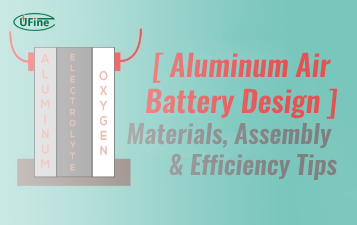
Aluminum Air Battery Design: Materials, Assembly & Efficiency Tips
An aluminum air battery uses aluminum and air to generate power. Learn its materials, assembly steps, and tips to boost energy output and efficiency.
7 Advantages of a Heated Lithium Battery in Cold Climates
Looking to power batteries in freezing temps? Heated lithium batteries excel in cold climates. Here are 7 key benefits and how they work.
How to Choose the Best Floor Scrubber Battery for Commercial Cleaning?
Selecting the ideal floor scrubber battery ensures a long runtime, rapid charging, and minimal maintenance for efficient commercial cleaning operations.
Battery for Blower vs Battery for Leaf Vacuum: Which One Should You Choose?
Battery for blower vs leaf vacuum—learn the key differences in power, fit, and runtime to choose the right battery for your outdoor tool needs.
How to Choose the Right Battery for Blower?
Choosing the right blower battery? Consider voltage, capacity, chemistry & usage. This guide helps match the best battery for peak performance.
